1942 Mauser Code 42
BLACK WIDOW SOLD
PHOENIX INVESTMENT ARMS -
PREMIUM COLLECTOR LUGERS
Genuine German
Luger - Largest Variety of Lugers Offered
Home | Post WWI DWM | Erfurt Lugers | Mauser | Simson Suhl | Krieghoff | Vickers, Ltd | Swiss Bern | Other Guns
Bottom of Page
|
|
This is a (19)42 Chamber dated Mauser Code 42 built for the German Schutzstaffel SS after the
contract for the P-38 was in production. The SS had their own
procurement system. This Parabellum is
9mm
with a 4" (100mm) barrel that is proofed and serial numbered to the gun. This example has
all matching numbers, comes with a complete rig of dated holster, extra matching magazine and loading tool. (1771) |
|
|
|
NOTE: Photographs taken today with the high mega-pixel camera show more than we sometimes can see with the human eye. Magnified close-ups show us tool marks and natural surface conditions that one normally doesn't see in the ordinary handling of the weapon. Photographs are copyrighted, all rights reserved, any extraction, reproduction or display of gun pictures without the express consent of the Phoenix Investment Arms is strictly prohibited. Thank you for your cooperation. Please visit Legal (tabbed) for Conditions of Sale. |
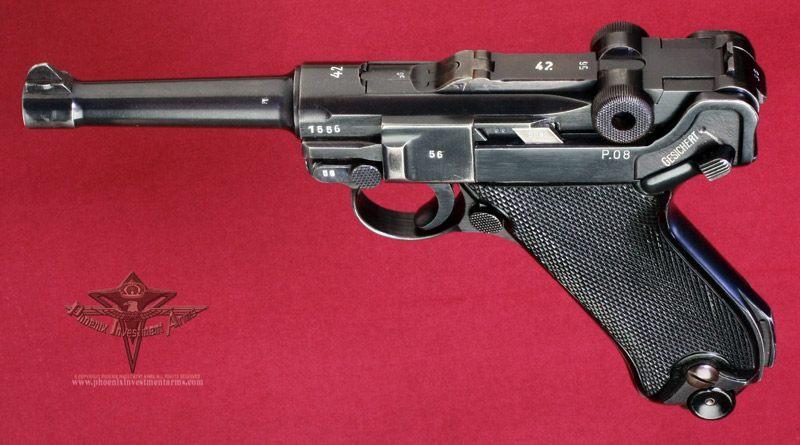
.jpg)
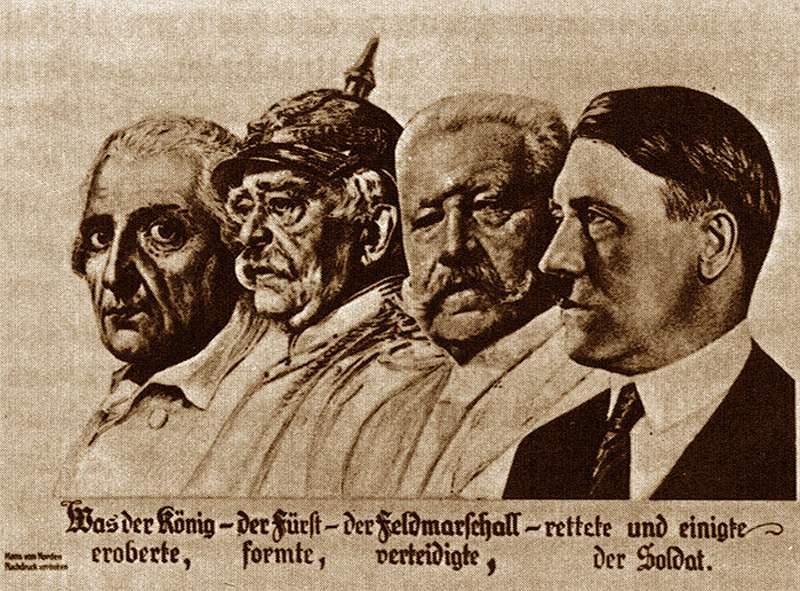
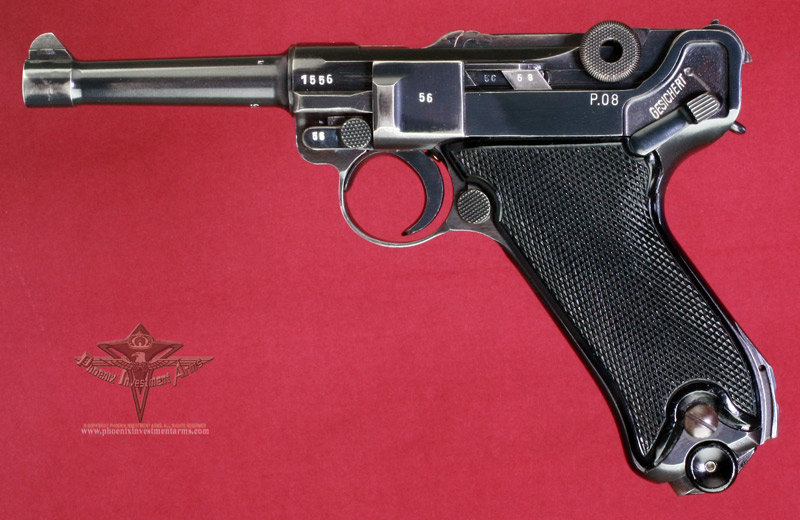
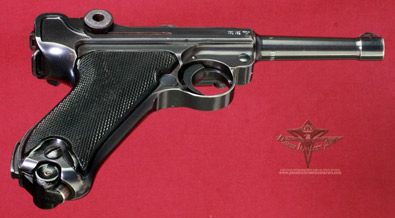
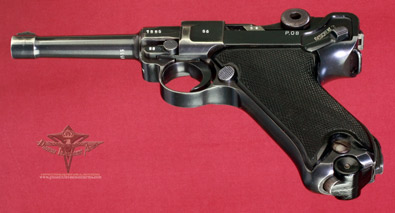
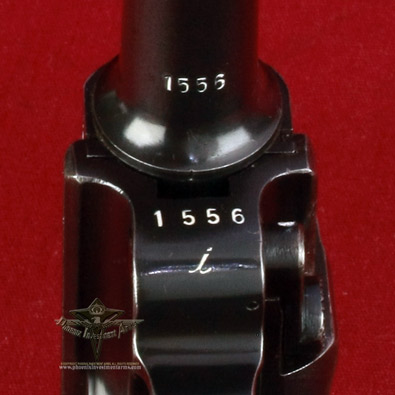
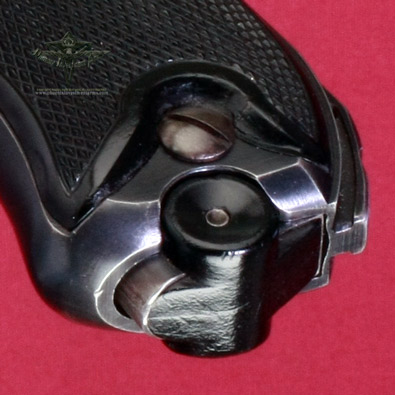

.jpg)

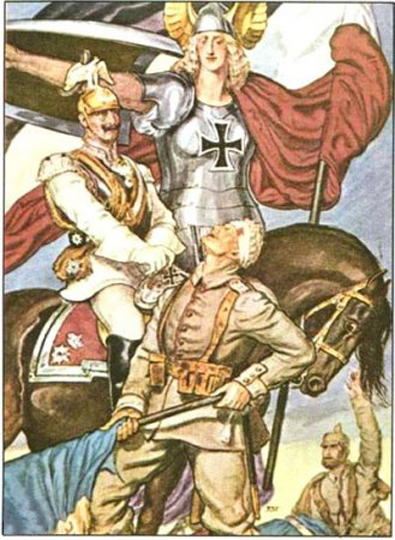

.jpg)
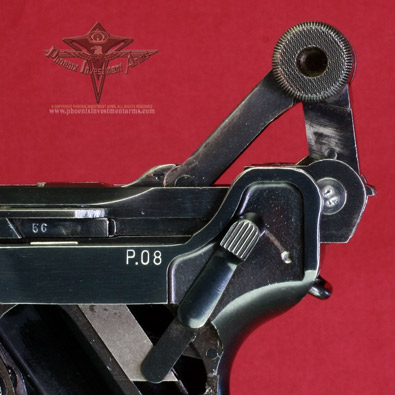
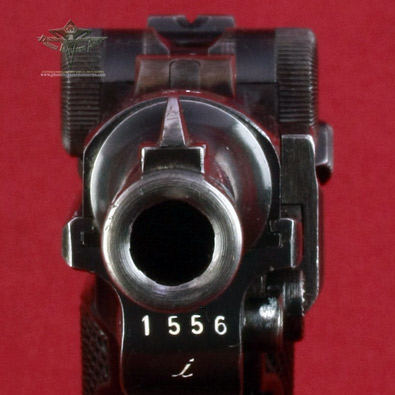
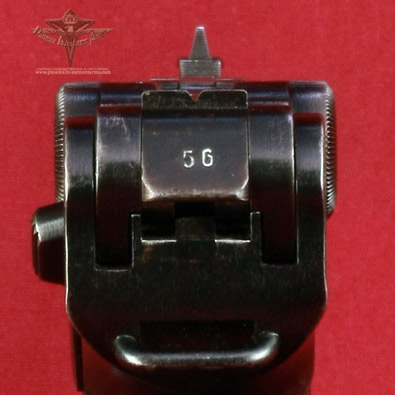
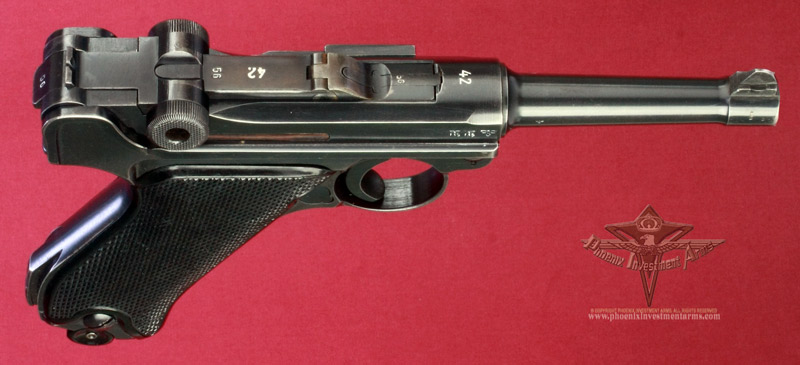
.jpg)

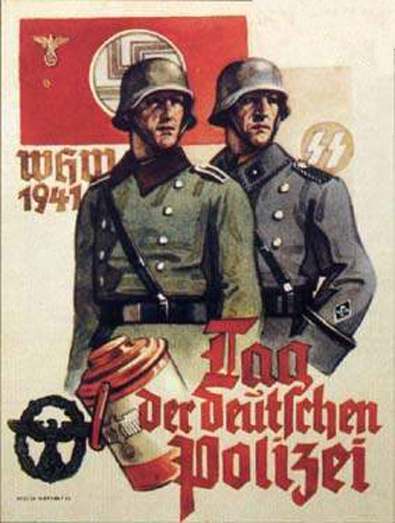
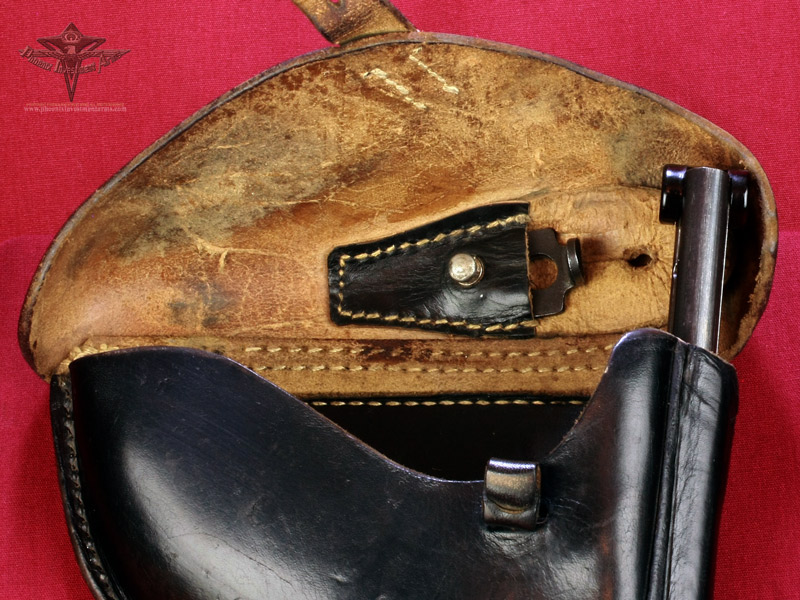
.jpg)
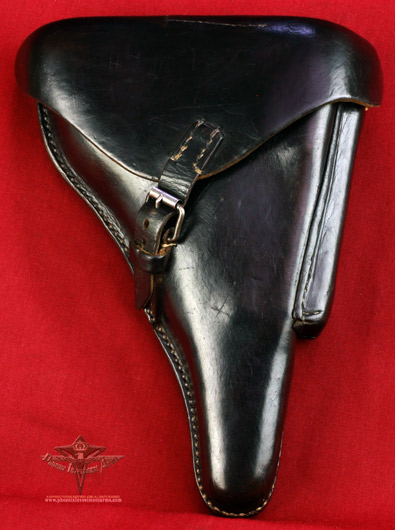
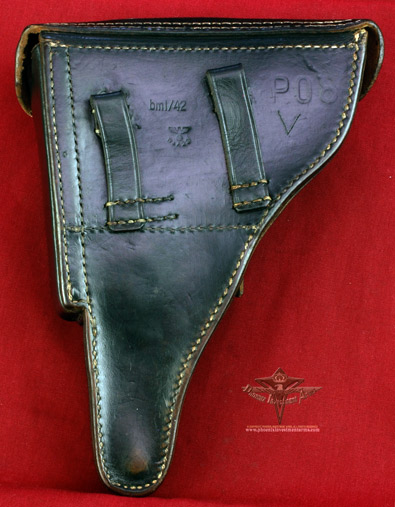
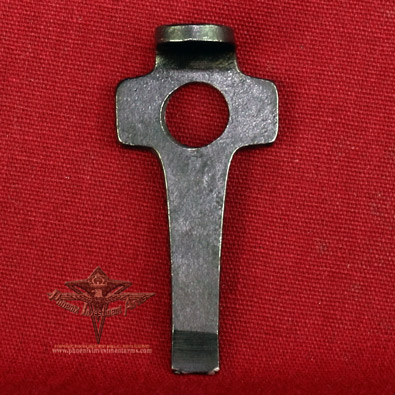
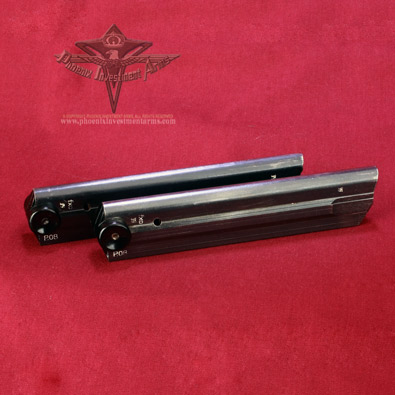
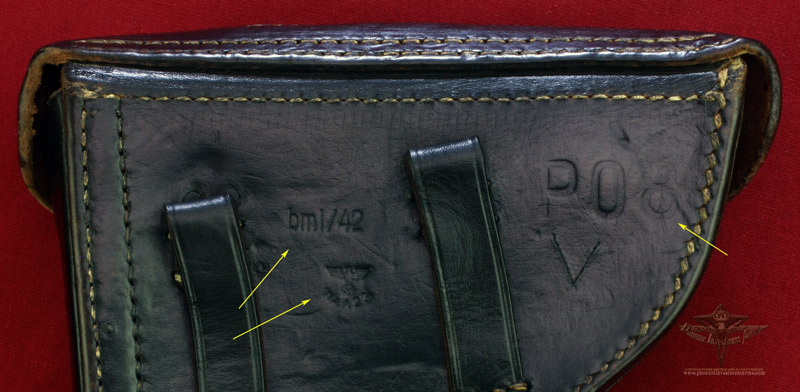
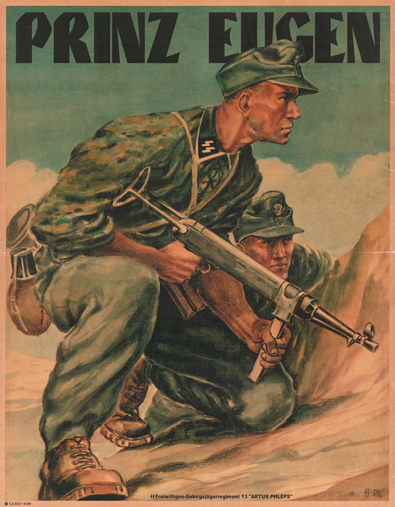
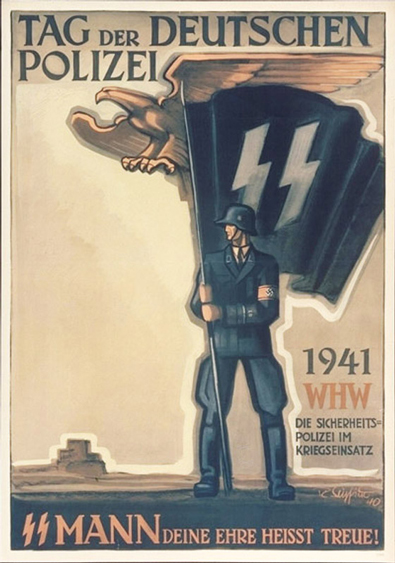
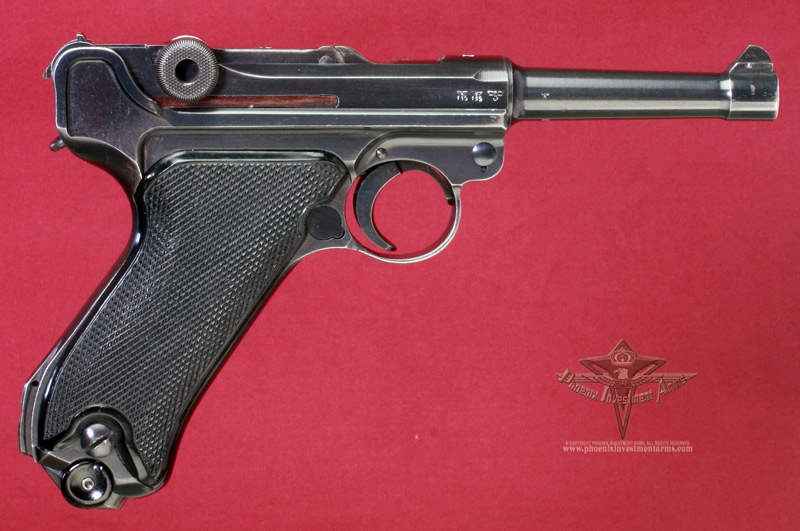
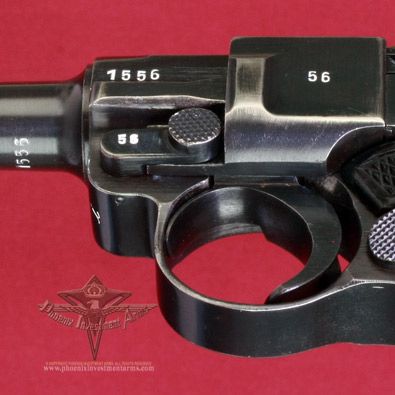
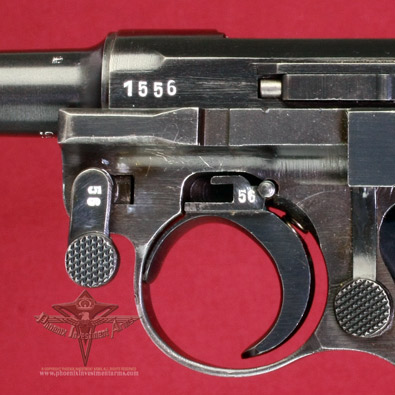
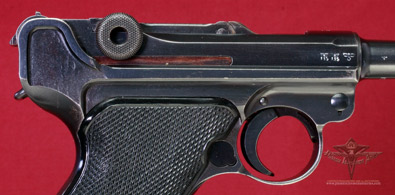
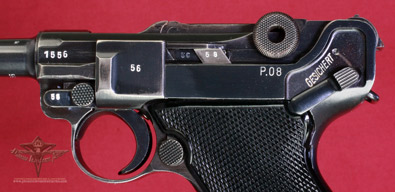
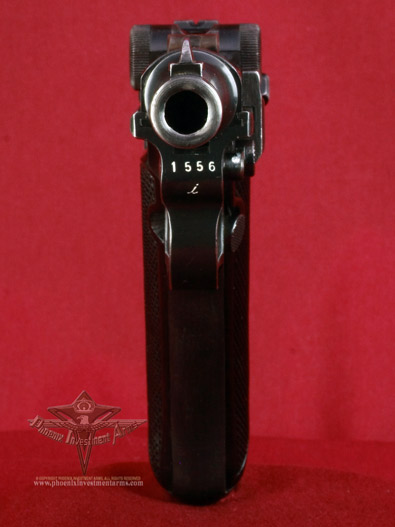
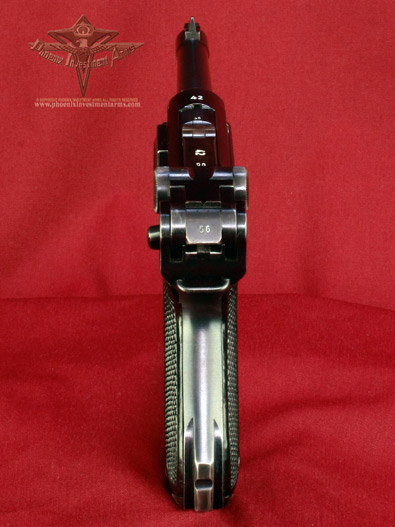
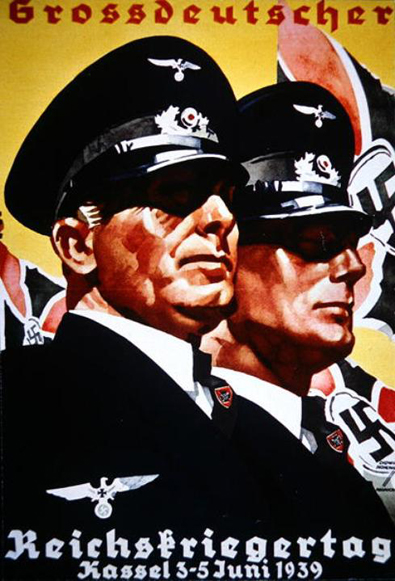

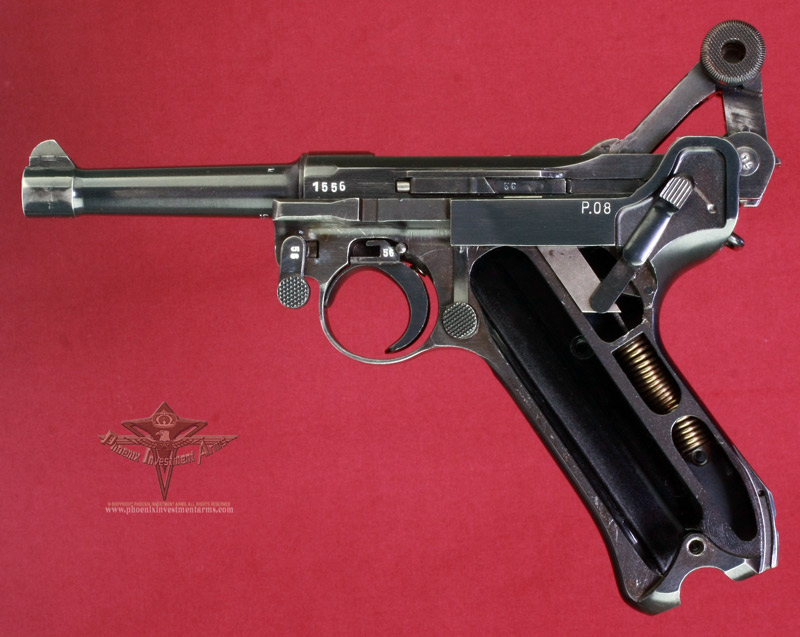
.jpg)
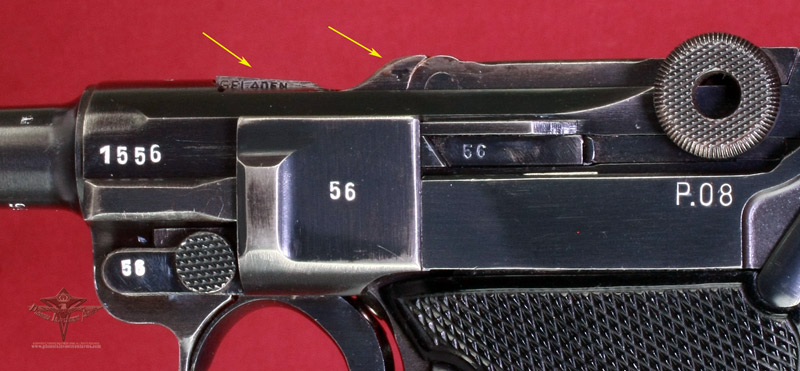
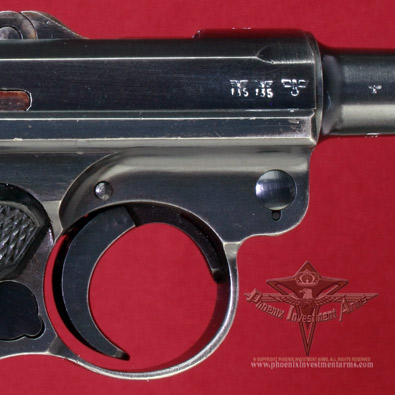
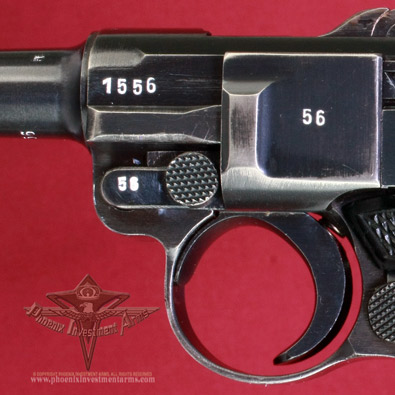


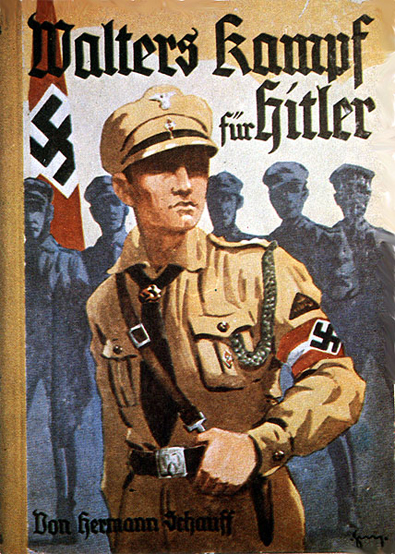
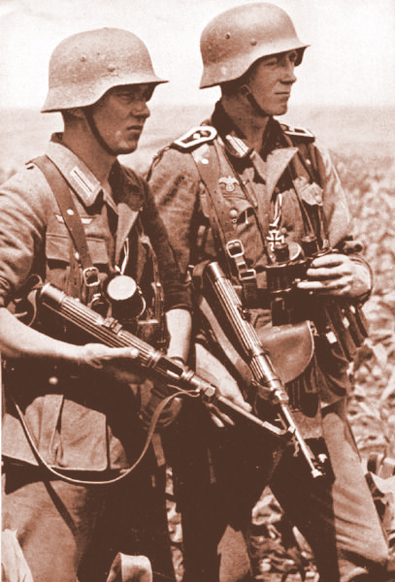
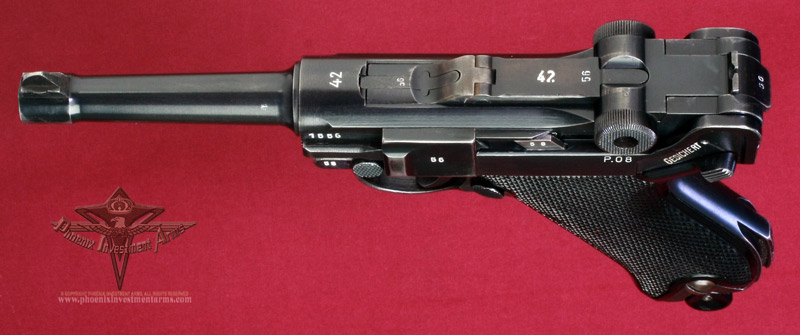
.jpg)